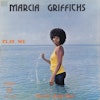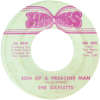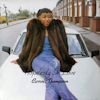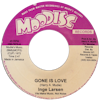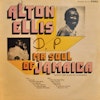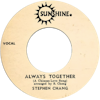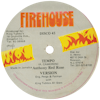Our security guard stopped me at the door of Alumni Hall, laughing in disbelief. “Flatbush? You do not go to Flatbush after dark!” During a summer session at NYU, I had begun making periodic trips to Veggie Castle on Church Avenue, a vegan cafeteria of Caribbean descent, built inside the hull of an abandoned White Castle. For all intents and purposes, Church Avenue was Jamaica; Dennis, also of Caribbean descent, felt it inadvisable that some good ol’ boy in cargo shorts should embark on a twilight pilgrimage into Brooklyn, only to be stabbed behind some veggie patties.
Admittedly, I didn’t know much about records, but inside neighboring J&W Records, amidst rows of titles like Pure Soca, sat five sealed copies of Marcia Griffiths’s Sweet and Lovely. You know, Marcia Griffiths? The I-Threes? “The Electric Boogie”? Well, I didn’t. Like a sorority girl decorating her first apartment, I just, like, liked the cover. My remaining purchases were, in a word, tragic. More than a few religious records divided the stack—and not gospel records, which would have been pretty cool. Sounds of Methodism, for God’s sake. As I grew more knowledgeable, Sweet and Lovely remained a memento of a budding obsession—more keepsake than centerpiece—in a collection that, like its owner, was maturing.
A decade later, while co-piloting the short-lived but long-loved Wax Poetics Record Rundown on East Village Radio, beloved contributor and reggae go-to man Carter Van Pelt stopped by to pay his respects to the recently departed Alton Ellis. Within the confines of my garden-variety reggae crate—amidst titles like “Murder She Wrote” and “Dolly My Baby”—was Sweet and Lovely, which I hoped Van Pelt could either confirm or deny the authenticity of. “Yeah, this is the real thing,” he said with a pause. “You should probably put this in some plastic.”
On Sweet and Lovely, Griffiths takes a move from the Roberta Flack playbook, making Black standards out of Caucasian compositions. She grants Peter, Paul and Mary and Bread Jamaican street credit, and seizes the opportunity to nice up Neil Diamond’s “Play Me,” whose title floats quite curiously above the horizon on the album cover. Veggie Castle closed several years ago, and I haven’t been back to J&W to conduct inventory of the remaining stock of this island rarity. But you’re welcome to check. Just one word of advice: Don’t go after dark. Once the wine bars and yoga studios let out, it can get pretty ugly.
